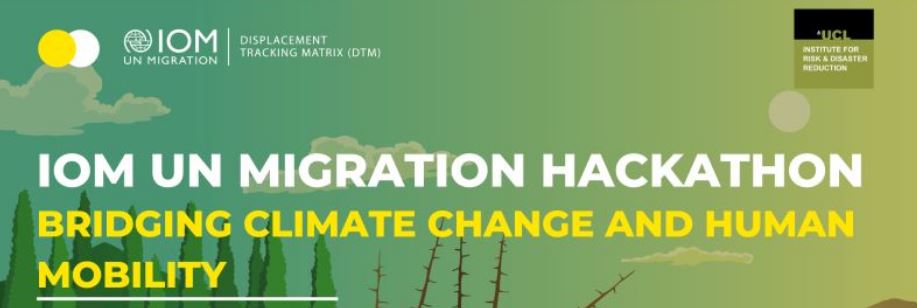The International Organization for Migration (IOM), in collaboration with data cloud company Snowflake, organised the first hackathon on ‘Bridging Climate Change and Human Mobility’.
The event aimed to provide insights into the intersection of environmental factors with migration management and policymaking in the East and Horn of Africa (EHoA).
Read also: Scotland publishes first Biometric Data for Code of Practice
Data-Driven Solutions to Complex Issues
The two-part hackathon took place in London (October 6-7) and Nairobi (October 23-26) and brought together participants from various sectors, including the tech industry and academia, such as Microsoft, the University of Liverpool, the London School of Economics, and the Addis Ababa University. The goal was to explore data-driven solutions and enhance understanding of the complex relationship between climate change, disasters, environmental degradation, and human mobility in the region.
Integrating Human Mobility into Climate Adaptation Plans
Laura Nistri, IOM’s displacement tracking matrix global coordinator, emphasized the importance of integrating human mobility into national climate adaptation plans. She stated, “We are thrilled to host this hackathon and, with Snowflake’s help, transform ideas into action, while harnessing the potential of data to address climate change and mobility challenges.”
Analyzing Migration Trends
Participants in Nairobi presented various analytical approaches tested on 70 different datasets to assess the feasibility of modeling the links between different drivers of mobility in the region. They also explored the use of new technologies, such as telecom data and machine learning, for analyzing migration flows and identifying new indicators.
Drought’s Impact on Forced Migration
Djibouti, Eritrea, Ethiopia, Kenya, and Somalia have been grappling with the most severe drought in over 40 years, affecting livelihoods, agriculture, ecosystem services, and increasing forced migration and vulnerabilities. As of June 2023, approximately 3 million people are internally displaced due to drought in these countries, with an estimated 6.6 million internally displaced individuals living in drought-affected areas.
Leveraging Data Insights for Climate Change and Migration
Fawad Qureshi, Global Industry Field CTO at Snowflake, highlighted the importance of using deep data insights to create a more accurate picture of the impact of climate change on migration. He emphasized the significance of understanding the impact of climate changes on migration trends and finding solutions to positively impact lives.
Following the hackathon, IOM and Snowflake will produce a comprehensive report and white paper summarising the results, which will be published in the lead-up to COP28, providing valuable insights into climate change’s impact on human mobility in the East and Horn of Africa region.
